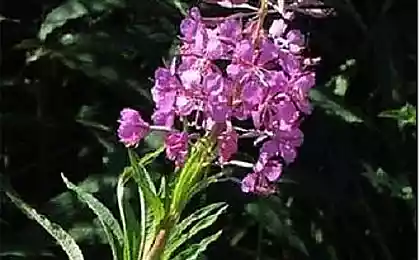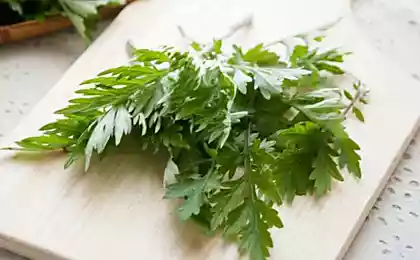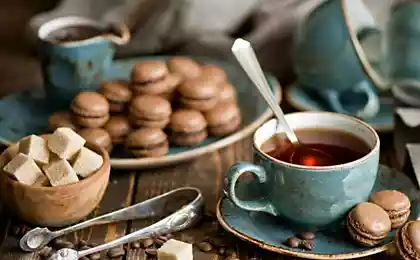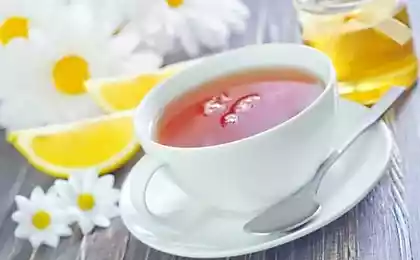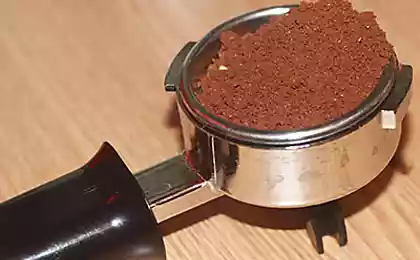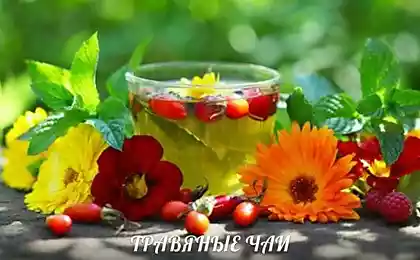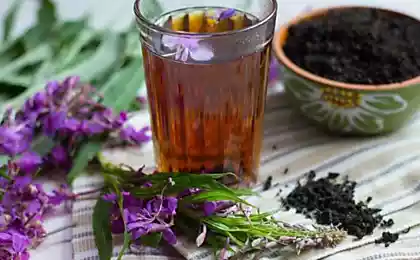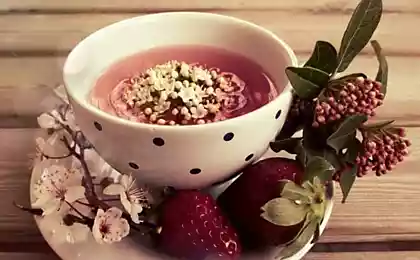314
What to drink instead of tea and coffee
In ancient Russia, drinks from herbs and roots were consumed long before the appearance of overseas tea (it was brought to us less than 300 years ago).

DepositPhotos
Up to the beginning of the last century, brews of blackcurrant and raspberry shoots, Ivan-tea drank when they wanted to avoid a cold and regain strength after hard work.

DepositPhotos
With the introduction of imported baikh tea, herbal teas were undeservedly forgotten. Despite the variety of species and a lot of useful properties, they still have not reached the peak of their popularity, although they are gradually entering our diet.
Flowers, leaves and stems of plants are the healthiest alternative to teas, and more diverse. Try replacing regular tea and coffee with herbal drinks. You will be surprised how quickly this will affect your health, appearance and well-being.
Coffee drinking and tea drinking became rituals. Getting rid of these good habits is not necessary. But if you make cooking drinks according to folk recipes a family tradition, the habit will also become useful.
Particularly worth talking about the taste of healing teas. Most often, their taste is “herbal” and, frankly, not too pleasant. However, there is always an opportunity to improve it by adding a herb with a pleasant aroma to any collection.
For example, add peppermint or apple mint, melissa, caterpillar, linden flowers, as well as hyssop, snakehead, oregano, lemongrass, fruits, flowers and rosehip root, cherry leaves. You can add to herbal tea and a little freshly brewed baikh tea, a slice of lemon or a spoonful of honey.
Since all tea herbs, without exception, are medicinal plants, you should consult your family doctor before using them.
What herbs in tea do you like?
In this article, we mentioned tea from amaranth – the real bread of the Slavs. Find out why Peter I forbade the cultivation of this plant.
Summer is just around the corner. Soon there will be a beautiful time when the day is long, the weather is excellent and you do not want to leave the street.
And all this is great, if not for one thing. Mosquitoes. "Site" prepared a list of useful plants that will drive mosquitoes away from your site.

DepositPhotos
Up to the beginning of the last century, brews of blackcurrant and raspberry shoots, Ivan-tea drank when they wanted to avoid a cold and regain strength after hard work.

DepositPhotos
With the introduction of imported baikh tea, herbal teas were undeservedly forgotten. Despite the variety of species and a lot of useful properties, they still have not reached the peak of their popularity, although they are gradually entering our diet.
Flowers, leaves and stems of plants are the healthiest alternative to teas, and more diverse. Try replacing regular tea and coffee with herbal drinks. You will be surprised how quickly this will affect your health, appearance and well-being.
- Lipa
Lipu is considered a pharmacy medicine. And there are reasons for this, because brewed tea made of lime color will help to cope with a cold. It acts as an antipyretic and sweatshop. It has bactericidal properties, fights inflammation of the mouth, stomach, has a mild calming effect.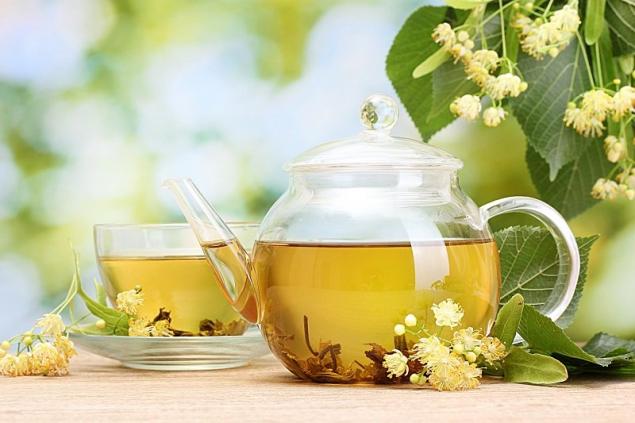
DepositPhotos
In summer, hot tea can be a little sweaty (useful, but not always appropriate in the heat), but chilled tea can replace soft drinks and even lemonade. Light natural sweetness from pollen flowers replaces sugar. - Amaranth
Amaranth tea is a natural source of vitamins A, C, E and important trace elements - magnesium, iron and calcium. In order to make a useful infusion, you will need the leaves of the plant. They need to be collected and dried, and you can prepare a drink in a thermos. The taste is sweet, a little tart.
Regular intake of such tea has a positive effect on the digestive and genitourinary system. It is shown to people who suffer from insomnia. Amaranth tea is recommended for diabetics, with malfunctions in the menstrual cycle and with inflammation of the joints.
Interesting fact: representatives of the UN predict that amaranth in the XXI century will become one of the most widespread crops in the world. The reason is that this plant does not require special growing conditions, has an increased nutritional value and a high level of yield. - Chamomile
Chamomile tea has long been treated diseases of the stomach and intestines, mucous membranes, spasms were removed. Acting as an antimicrobial and anti-inflammatory agent, chamomile has a cleansing effect on the body.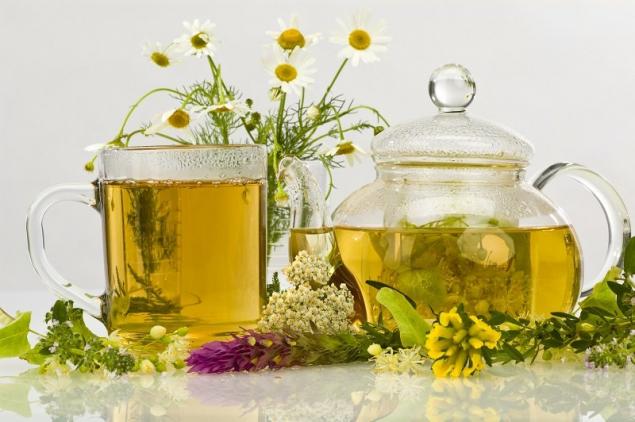
From a hot drink, sweating increases, and then unnecessary toxins come out, the work of the intestines normalizes. Do not abuse such tea - its sedative properties can adversely affect concentration and performance. - Elderberry
Elderberry flower tea is also called Swiss tea. The drink has a pleasant taste, a subtle aroma and a lot of useful properties. Our ancestors in time immemorial understood that decoctions of elderberry flowers are an indispensable remedy for colds, coughs and high body temperature.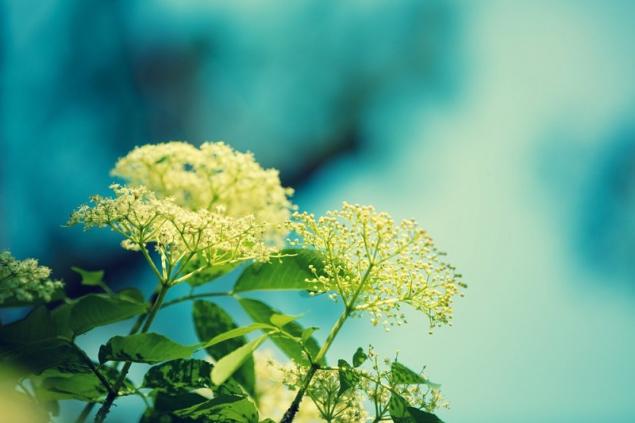
DepositPhotos
Elderberry tea has a pronounced sweatshop, anti-inflammatory and expectorant effect, perfectly combined with another useful natural product - honey, which perfectly interacts with the color of elderberry and works as a drug for various diseases of the respiratory organs.
With the help of elderberry tea, you can quickly and effectively bring down a high temperature, forcing the patient to sweat actively. After that, it is very important to quickly wipe the patient’s body dry and change it into dry underwear.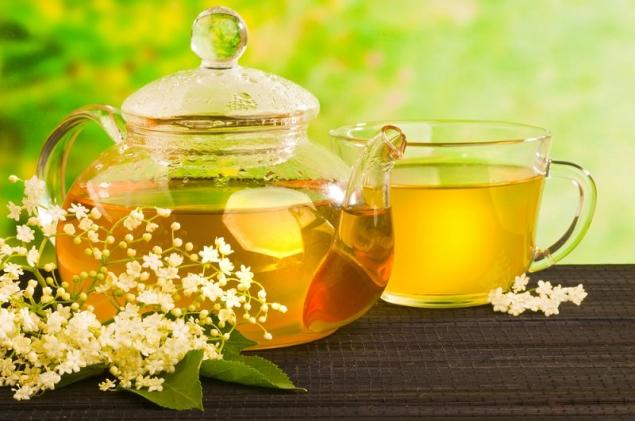
DepositPhotos
In addition to the treatment of colds, elderberry has a positive effect on the state of the cardiovascular system due to the content of the most useful substance - routine. Elderberry tones and strengthens blood vessels, reduces their permeability and brittleness, which has a positive effect on the condition and functioning of all organs. - rose
Tea from rose petals, as well as flowers of the whole family (hibiscus, karcade) is most appreciated for the red pigment. It contains vitamin P, which is indispensable as a nourishment for the cardiovascular system.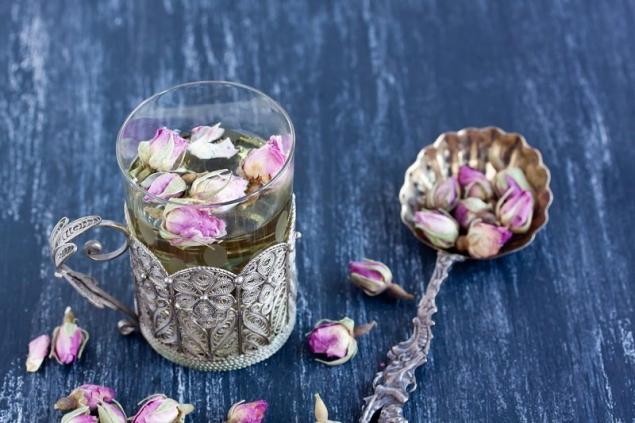
This tea increases endurance, strengthens blood vessels, reduces allergic reactions and cleanses. Chilled tea can be used as a soft tonic for the skin of the face. - Ivan-chai
Ivan-tea is a plant of the Cypriot family. It is also called kopor tea (Russian tea). The name Koporsky came from the name of the area Koporye near St. Petersburg, where the main production of this tea is concentrated.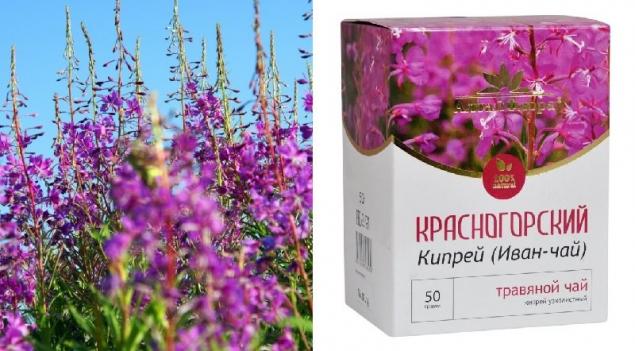
Kopor tea has been popular in Russia for centuries and was common even before the advent of Chinese tea. It was drunk even in monasteries, where tea and coffee were banned as stimulating beverages.
By its sedative effect on the body, ivan tea is close to medicinal valerian. In addition, broths and infusions of boiler have astringent, anti-inflammatory, enveloping, sweatshop and antibacterial properties.
Doctors recommend drinking healing tea from Cyprus to improve metabolism, normalize sleep, strengthen immunity, cleanse the body of toxins. Very useful is ivan tea for acute respiratory infections, sore throats, colds: a decoction of grass will rinse the throat, brew and take inside in the form of healing tea. - Mint
Calms, normalizes pressure and relieves pain, eliminates nausea and heaviness in the stomach. Mint tea can cope with any discomfort associated with the digestive organs. In addition, menthol in the plant is a pleasant cooling bonus, especially in the summer.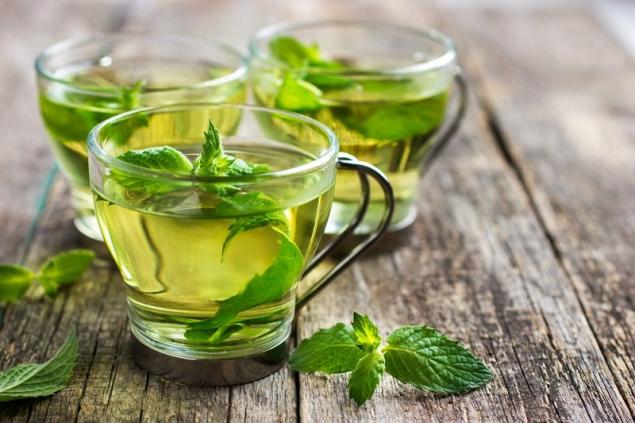
DepositPhotos
Interestingly, mint tea is able to simultaneously perform two seemingly mutually exclusive actions – calm and stimulate brain activity. - Dandelion roots
Dandelion tea has the ability to cleanse the body of toxins and saturate it with useful substances. In the old days it was used to avoid scurvy.
DepositPhotos
Dandelion tea Positively affects the state of the nervous system, helping to relax and get rid of stress. Also, this drink helps stimulate appetite, so it is perfect for people with malnutrition, as well as for recovering patients. - thyme
This herb can often be found in herbal health collections or in the composition of detox teas. Tea with thyme envelops, disinfects, gently heals and cleanses the mucous membranes. As a medicine, it is used for bronchitis and other respiratory diseases.
- issop
Tea from hyssop tastes like mint. This tea has many useful flavinoids, tannins and oils that thin sputum in bronchial infections and colds.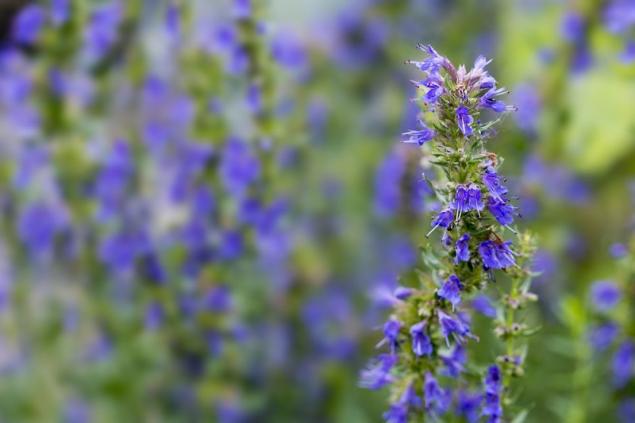
DepositPhotos
The antiseptic properties of hyssop help it fight infections in the throat and nasal passages, and as an astringent it normalizes blood pressure, relieves fever and soothes after strong emotions. - fennel
Greens, dried stems or even fennel seeds have a powerful cleansing effect on the body. Fennel tea binds and removes toxins, radionuclides, salts of heavy metals, slags from the body.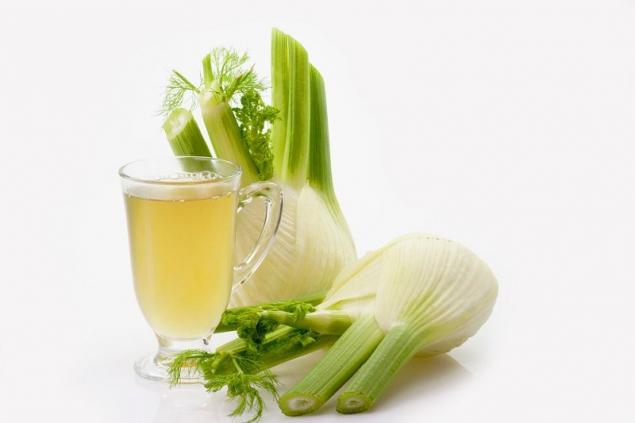
It also regulates peristalsis and normalizes intestinal motility, acting as a windmill. Good both in its own form and in combination with other herbs. - basilica
Tea from fresh basil perfectly calms the nervous system, stabilizes the mental state, helps get rid of depression. This effect has essential oils contained in the plant, so dried leaves will not be so effective.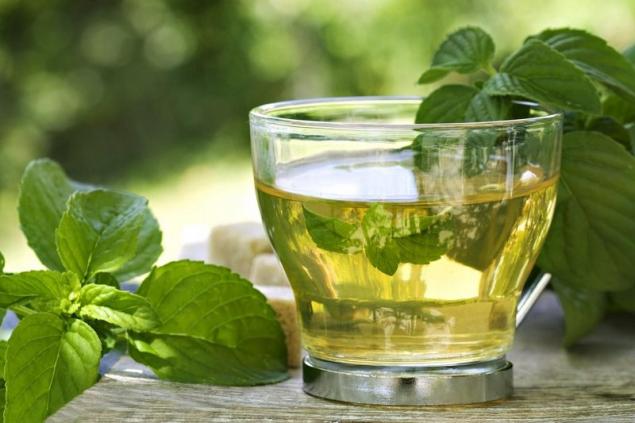
Tea from basil will help those who suffer from bowel diseases. The decoction of this plant acts calmingly, relieves spasms and inflammation, normalizing the work of the gastrointestinal tract. This drink is useful in the evening for people suffering from insomnia. - Raspberry branches
Useful properties of crimson branches were known in ancient times. As a medicine, our ancestors used both fresh and dry branches of the raspberry bush. They made healing tinctures and decoctions, which served as a real salvation from many ailments.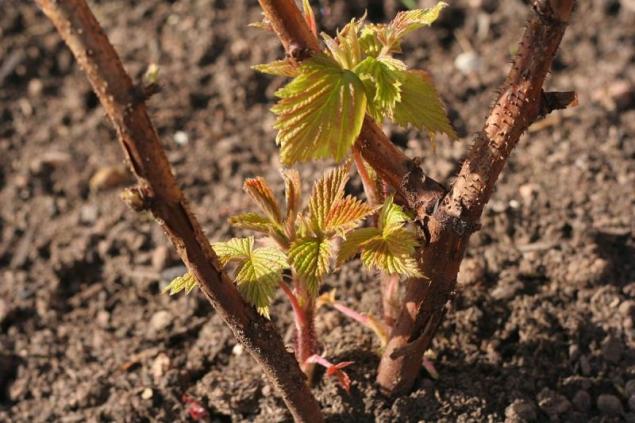
Tea from raspberry branches It helps in case of a cold. This is a good antipyretic, sweatshop, anti-inflammatory agent.
Useful properties of raspberry branches can be used to strengthen immunity. And the coumarin contained in them helps to strengthen blood vessels, normalize blood clotting and prevent atherosclerosis.
Coffee drinking and tea drinking became rituals. Getting rid of these good habits is not necessary. But if you make cooking drinks according to folk recipes a family tradition, the habit will also become useful.
Particularly worth talking about the taste of healing teas. Most often, their taste is “herbal” and, frankly, not too pleasant. However, there is always an opportunity to improve it by adding a herb with a pleasant aroma to any collection.
For example, add peppermint or apple mint, melissa, caterpillar, linden flowers, as well as hyssop, snakehead, oregano, lemongrass, fruits, flowers and rosehip root, cherry leaves. You can add to herbal tea and a little freshly brewed baikh tea, a slice of lemon or a spoonful of honey.
Since all tea herbs, without exception, are medicinal plants, you should consult your family doctor before using them.
What herbs in tea do you like?
In this article, we mentioned tea from amaranth – the real bread of the Slavs. Find out why Peter I forbade the cultivation of this plant.
Summer is just around the corner. Soon there will be a beautiful time when the day is long, the weather is excellent and you do not want to leave the street.
And all this is great, if not for one thing. Mosquitoes. "Site" prepared a list of useful plants that will drive mosquitoes away from your site.
Don't think bad, you'll get sick. Doctor Avicenna said that...
Our colleague went to China: no longer tired! The Chinese way of treating all diseases.

















